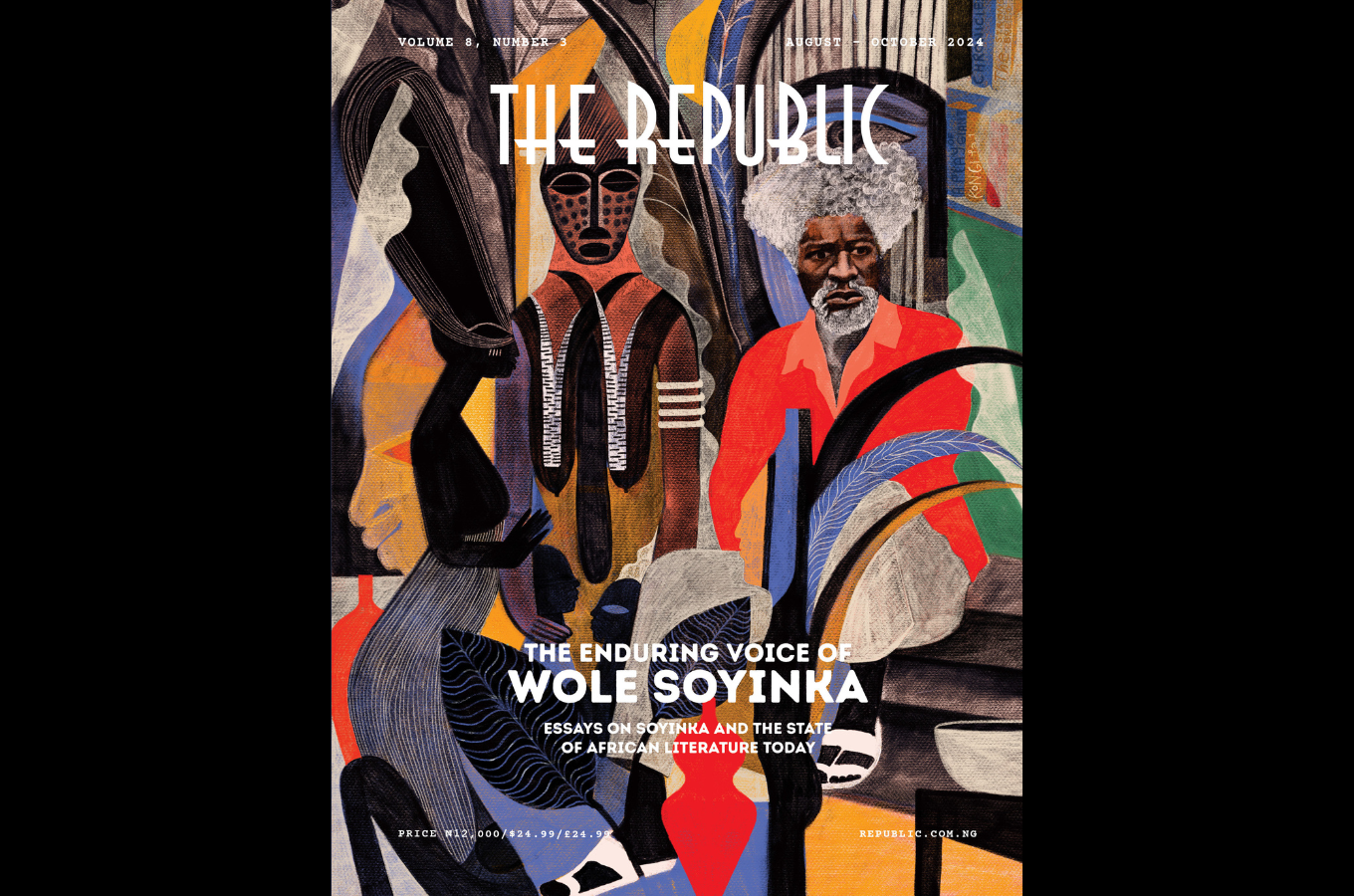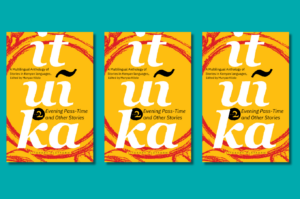
The Enduring Voice of Wole Soyinka is the latest issue from the acclaimed Nigerian journal The Republic. The issue, edited by Wale Lawal, celebrates the writer’s towering legacy in his 90th year and also considers the state and developments of contemporary African literature.
Wole Soyinka, a Nigerian writer and political activist, is the first Black African to receive the Nobel Prize for Literature in 1986 in recognition of his prolific work in many genres, particularly his plays. His numerous writings and strong political critiques have made him an influential figure in the world of African literature and politics for more than 50 years.
The Enduring Voice of Wole Soyinka gathers writers from Africa and the African diaspora “to understand how Soyinka’s works better prepare us to engage with our world” and to reflect on new possibilities for what African literature could mean. In his foreword to the issue, editor-in-chief Wale Lawal situates Soyinka’s legacy within the evolving conversations in the African literary space today:
African literature is currently experiencing a plurality of debates: from whether nationality alone is what makes literature African to how to place literature from North Africa—is it African or Middle Eastern? To whether there is still hope for pan-Africanism and what the role of literature might be towards that end. What is clear is that reading Soyinka can help us understand some of these questions and perhaps even begin to answer them. After all, Soyinka has been engaged in some of these discussions for a very long time.
The issue opens with an interview between Lawal and Soyinka. Spanning reflections on his 2004 lecture “Climate of Fear,” criticism of Nigerian president Bola Ahmed Tinubu, and the risks of political writing, the interview highlights Soyinka’s commitment to revealing and resisting global tyranny and oppression. This commitment is a recurring thread in the 14 articles that comprise this issue.
In “What Wole Soyinka Means to Me,” one of the cover stories, British-Nigerian author Sarah Ladipo Manyika reflects on Soyinka as both a global public intellectual and a personal family friend. Manyika holds these two sides together: Soyinka as a magnanimous, booming-voiced mentor; Soyinka as a public intellectual activist expressing consistently principled criticism against South African apartheid, corruption in the Nigerian government, racism in the United States, and the illegal Israeli occupation of Palestine—often at great personal risk.
Richard Solomon takes up one of these moments of personal risk—Soyinka’s two-year solitary confinement during the Nigerian civil war—in his incisive contribution “Soyinka in the Gaza Crypt.” For Solomon, Soyinka’s poetry collection Shuttle in the Crypt, written during this period of solitary confinement, gives those of us that are free a deep sense of solidarity with political prisoners. Solomon ties this collection to the ongoing Israeli genocide of Palestine, and particularly to the horrific conditions under which thousands of Palestinians have been and continue to be held in Israeli prisons. He shows similarities between the works of Soyinka and Palestinian poets as well as how Soyinka allows us to understand the lived experience of these prisoners.
Other articles in The Enduring Voice of Wole Soyinka explore his legacy as a dramatist, present feminist analyses of his works, consider themes and developments in Nigerian literature, debate the colonial problematics of English-language use in African literary production, and examine the relationship between literature and political action.
Together, the articles in this issue affirm Wole Soyinka as a monumental thinker and a global figure of resistance. The Enduring Voice of Wole Soyinka not only lauds the writers brilliant achievements, but also shows us how Soyinka can help us understand and act in our world today.
The Republic is a magazine and platform of socio-economic and political commentary, criticism and cultural discourse, that explores the world as Nigerian.
Get a copy of The Enduring Voice of Wole Soyinka here!









COMMENTS -
Reader Interactions